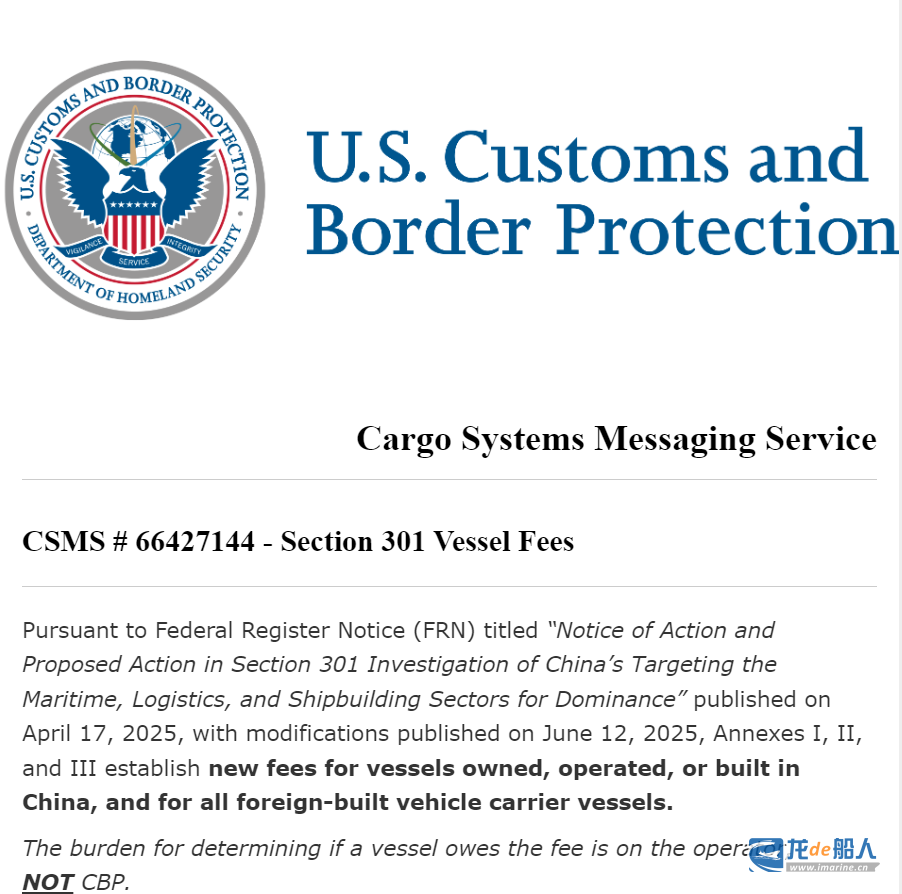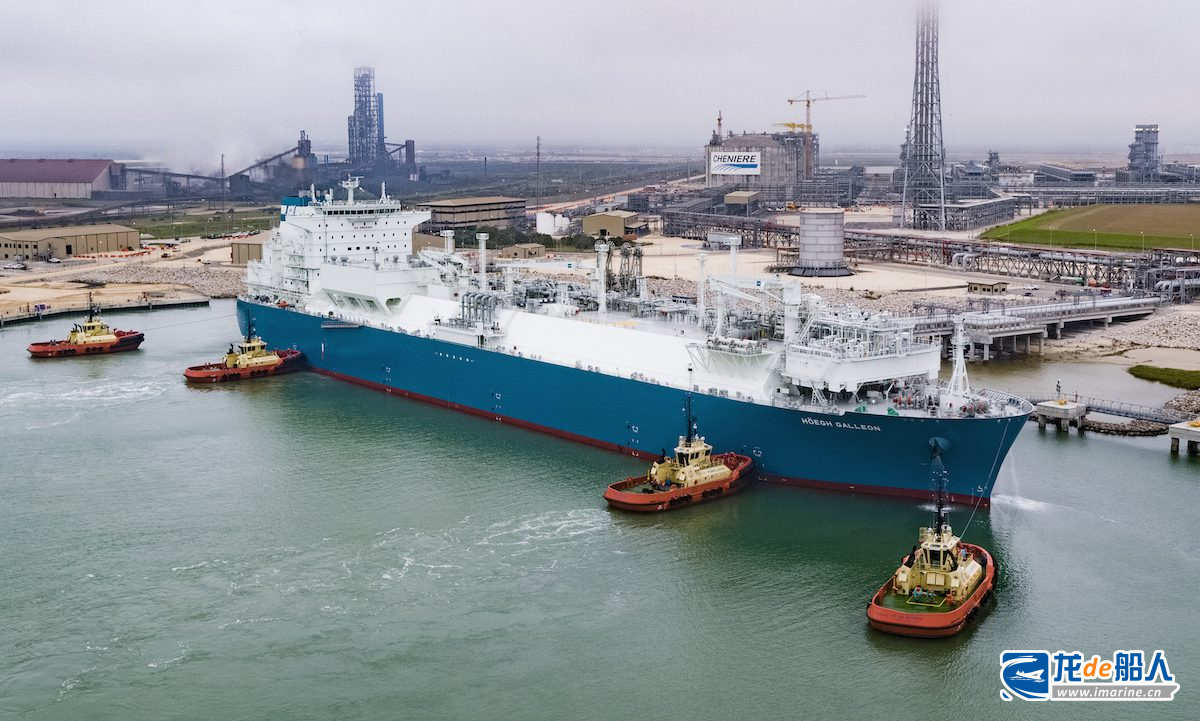The U.S. has determined that new fees will be imposed on vessels owned, operated, or constructed by China, as well as all foreign-built car carriers, effective October 14, 2025. LNG carriers classified as Category 132 under the International Classification of Ship Types (ICST) are explicitly exempt from these fees.

On October 3 local time, the U.S. government issued the “Section 301 Vessel Fees” notice. Pursuant to the “Notice of Action and Proposed Action Regarding Section 301 Investigation into China’s Dominance in Maritime, Logistics, and Shipbuilding Sectors” published on April 17, 2025, and its revised version issued on June 12, 2025, it formally designated three categories of vessels (Annexes I, II, and III) as subject to duties and announced the applicable fee rates:
- Annex I: Effective October 14, 2025, vessels owned or operated by Chinese entities shall be subject to a fee of US$50 per net ton.
- Annex II: Effective October 14, 2025, vessels constructed in China shall be subject to a fee of US$18 per net ton or US$120 per unloaded container, whichever is higher.
- Annex III: Effective October 14, 2025, a fee of US$14 per net ton shall be levied on vessels classified as car carriers or roll-on/roll-off (RO-RO) vessels.
The vessel operator is responsible for calculating this fee and providing supporting documentation, upon request. The vessel operator must pay all accumulated fees for which that entity is liable as determined by CBP. Payment may be made using existing government methods to the extent possible, as determined by CBP.
Collections, supplemental payments, and refunds:
Time and place of liability. Subject to the exemptions and special rules of this Annex, on or before the entry of a vessel at the first U.S. port or place from outside the Customs territory on a particular string, the vessel operator must pay:
- Effective as of April 17, 2025, a fee in the amount of $0 per net ton for the arriving vessel.
- Effective as of October 14, 2025, a fee in the amount of $50 per net ton for the arriving vessel.
- Effective as of April 17, 2026, a fee in the amount of $80 per net ton for the arriving vessel.
- Effective as of April 17, 2027, a fee in the amount of $110 per net ton for the arriving vessel.
- Effective as of April 17, 2028, a fee in the amount of $140 per net ton for the arriving vessel.
- The fee will be charged up to five times per year, per vessel.
The U.S. recommends that vessel operators initiate the payment process at least three business days prior to the vessel’s arrival and complete payment before the vessel arrives. Vessels failing to provide proof of payment will be denied loading/unloading operations or temporarily detained until proof of payment is verified.
All fees must be paid directly through the secure official Pay.gov website of the U.S. Department of the Treasury and cannot be paid at the port of entry.
Analysis indicates that the core provisions of the latest U.S. Section 301 Shipbuilding Fees regulations remain largely consistent with previous versions. Specifically, the June 12 revision’s mention of “expanding the scope of measures targeting car carriers while easing LNG export licensing requirements” has been elaborated upon and implemented in the new regulations.

The Office of the United States Trade Representative (USTR) stated in its June revision that it would change the fee calculation for car carriers from vehicle capacity to net tonnage. At that time, the specific fee structure was not specified, and this detail has now been supplemented in the latest fee guidelines.
The explicit exemption granted to LNG carriers stems largely from the fact that the U.S. currently possesses no domestically built LNG carriers: the last batch constructed by U.S. shipyards entered service in 1980 and was decommissioned in 2021, while the shipyard capable of building LNG carriers ceased operations in 1986.
In response to U.S. port fee policies, China will launch a strong counterattack. On September 29, the State Council announced a decision to amend the Regulations of the People’s Republic of China on International Maritime Transport, effective immediately upon publication.
The amended regulations explicitly state: “Where any country or region adopts, or assists or supports the adoption of, discriminatory prohibitive, restrictive, or other similar measures against operators, vessels, or crew members engaged in international maritime transport and auxiliary services of the People’s Republic of China, the Government of the People’s Republic of China shall, except where relevant treaties or agreements provide adequate and effective remedies, take necessary countermeasures based on the actual circumstances.”


